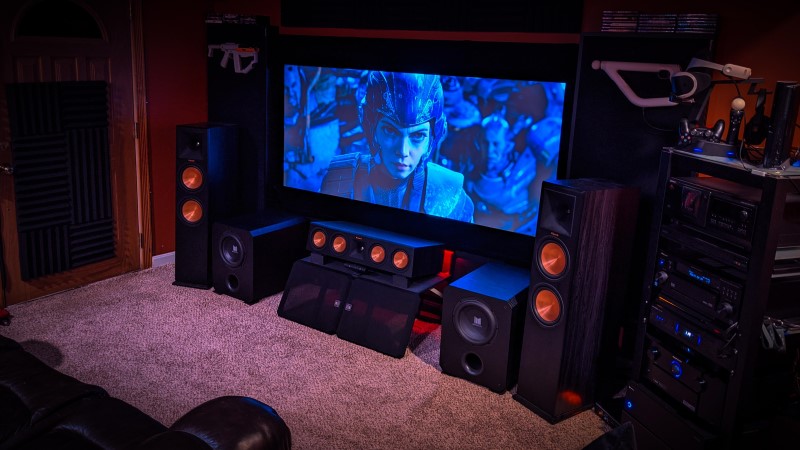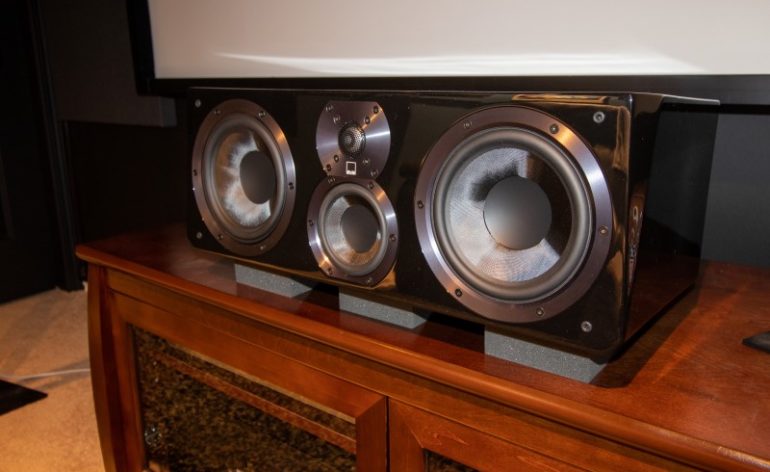Will Adding a Center Speaker Make Dialogue Clearer?
On average, every third comment on an audio forum will claim that your center channel is the most important speaker in your surround sound system. While we disagree, we do think it can make a very big difference. Unfortunately, many seem to think that the answer to many of your home theater woes is to either get or upgrade your center channel speaker. One common problem is dialogue intelligibility. If you are using just two speakers and are having problems understanding what is being said, people will tell you that adding a center speaker will make the dialogue clearer. And it might. But it also might not. Let’s discuss.
What You’ll Need
If you want to add a center channel speaker, you’ll need an AV receiver. While you can use self-powered speakers for your left and right speakers, you’ll need an AV receiver to process the center channel information. We have guides on how to set up your receiver and how to send the audio from your TV to the AV receiver. Provided you have the receiver, you can go to the next step.
In the setup menu, you’ll need to tell your receiver how many speakers you have. You’ll say “yes” for the front left, right, and center speakers and “no” for all the surround speakers. The receiver will automatically process the center information and collapse all the rest of the sounds into your front left and right speakers.
Advantages of Using a Center Speaker
If you want clearer dialogue, adding a center speaker will give you more control over the volume of voices. The majority of voices are anchored in the center speaker so you can increase the volume (trim level) of the center speaker individually. You’d do this after you’ve run your room correction program. This alone may give you the dialogue intelligibility you are seeking.

In addition, many AV receivers have special functions that boost dialogue. You’ll need to check your manual for the specific names. In general, they will identify sounds that it thinks are voices (based on their frequency mostly) and increase their volume. Look for “dialogue lift,” “dialogue normalization,” or “dialogue boost.” These may help. They might also help without a center speaker so, if you haven’t bought one yet, try it out.
If you are sitting off-axis from your TV, you might not be sitting between the two speakers. This makes creating a phantom center image nearly impossible. Simply by adding the center speaker, your dialogue may be clearer because it sounds like it is actually coming from the TV. A physical speaker also allows you to aim it more toward your seat, something that might not be possible with your left and right speakers.
Why Adding a Center Speaker Might Not Help Make Dialogue Clearer
One of the most common reasons for dialogue not being as clear as you want isn’t the lack of center speaker, but room acoustics. As the sound bounces around your room, the waves can cancel each other out. With highly reflective rooms, this is especially true. Adding a dedicated center speaker may increase your ability to understand what is being said, but it might not. If you haven’t addressed your room acoustics, you could add a center speaker and find that your problem not only isn’t better, but it is worse!

Like many things in life, just buying something isn’t the end of the process. It is the beginning. Not only do you need the center speaker, but you need to set it up correctly. If you push it into a cabinet or place it non-optimally, you aren’t going to realize the benefits you were promised. On top of that, you need to make sure you are using the correct decoding modes on your AV receiver. If you put your receiver in Pure Direct and are listening to something in stereo, the center speaker will not be used. Adding a center speaker won’t, by itself, make dialogue clearer. You need to make sure you have the speaker and receiver set up properly.
Wrap Up
The first mistake people make is how they ask the question. They don’t say, “I’m having problems understanding voices. Here is my gear, a picture of my room, and some more information. What will help?” Instead, they just ask for center speaker recommendations. Most of the time, the speaker recommendations are good. If not having a center speaker is the reason that dialogue isn’t clear, those speakers will help. But they might not. If you do your research beforehand (our links will help), you should have a better idea if adding a center channel is really the answer.
Did you add a center speaker to your system? Did it help as much as you expected? What else also helped? Let us know in the comments!


